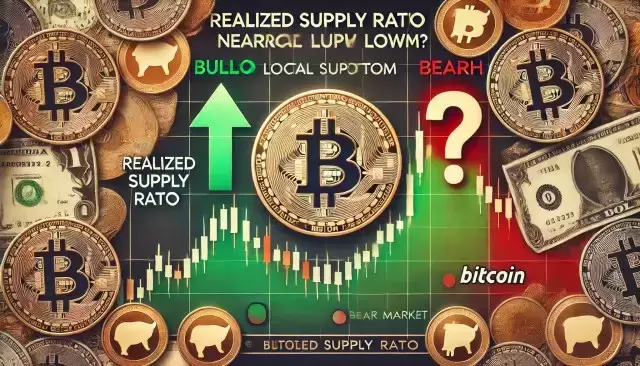 |
|
 |
|
 |
|
 |
|
 |
|
 |
|
 |
|
 |
|
 |
|
 |
|
 |
|
 |
|
 |
|
 |
|
 |
|
Cryptocurrency News Articles
TADA: Combining Blockchain, Ride-Hailing, and Electric Vehicle Manufacturing to Disrupt Southeast Asian Mobility
Jul 03, 2024 at 05:09 pm
Kay Woo started his journey in the mobility industry after moving from New York to Hong Kong in 2015. Initially, he launched a cross-border car reservation service.

Kay Woo, the founder of TADA, a blockchain-based ride-hailing service, shares his entrepreneurial journey and the challenges and triumphs he encountered along the way.
After moving from New York to Hong Kong in 2015, Kay initially launched a cross-border car reservation service. However, with major players like Uber and Grab struggling to turn a profit, investors were hesitant to back new entrants in the ride-hailing space.
In 2018, Kay introduced a new protocol called MVL (Mass Vehicle Ledger) and chose Singapore as the first market to launch TADA, combining blockchain technology with ride-hailing. The timing was opportune as Uber had just merged its Southeast Asian operations with Grab, creating a near-monopoly in the region.
TADA's unique selling proposition was its 0% commission model for drivers, made possible by blockchain and token economics. This approach allowed TADA to attract drivers and offer cheaper fares to customers while still growing its ecosystem.
Initially, TADA focused on acquiring drivers, leveraging the appeal of the 0% commission model. However, attracting users proved challenging as many were already locked into existing platforms like Grab. The COVID-19 pandemic provided an unexpected boost to TADA's growth. As overall demand for ride-hailing services decreased, drivers looked for platforms with better earning potential, and users sought cheaper options. This alignment of needs helped TADA gain market share.
While TADA doesn't charge commissions, it generates revenue through a platform fee of 60 cents per trip, similar to the “software usage fee” implemented by competitors. This fee has made the company profitable. Additionally, TADA uses a portion of its revenue to buy back its MVL tokens from the market and redistribute them to drivers as incentives.
The MVL token can be used to redeem service vouchers for ride-hailing and to pay for battery swapping services for electric vehicles in Cambodia. About 70% of the total token supply is in circulation, with the remaining 30% held by the foundation.
After Singapore, TADA expanded into Cambodia, identifying it as a promising market due to its developed capital city and the prevalence of smartphone-based ride-hailing. In Cambodia, TADA noticed that most taxis were three-wheeled vehicles imported from India. This observation led to the company's next venture: manufacturing electric three-wheelers.
TADA launched Onion Mobility to produce electric three-wheelers (tuk-tuks) in Cambodia. This move was driven by several factors:
1. The need to access vehicle movement data for their blockchain ecosystem
2. The relatively lower technical barrier to entry for producing two and three-wheelers compared to four-wheeled vehicles
3. The opportunity to address the financial challenges faced by drivers in acquiring vehicles
As of the podcast recording, TADA had delivered over 700 electric three-wheelers in Cambodia over the past two years.
To help drivers who struggle to obtain loans due to lack of credit history or poor credit scores, TADA introduced a “Rent to Own” program. Drivers can rent the vehicles, work on the TADA platform, pay rental fees, and eventually claim ownership of the vehicle.
TADA is also connecting this vehicle financing to Japanese investors. Instead of earning low interest rates from bank accounts, Japanese investors can purchase these vehicles and earn higher returns (5–10%) from the rental income paid by drivers in Cambodia.
TADA collects vehicle movement data, including location and condition. While the company doesn't solely rely on selling this data for revenue, it uses the information to provide value-added services. For instance, investors who purchase vehicles through TADA's financing program can access a dashboard showing the driver's income, location data, and driving distance.
Currently, TADA operates as a dApp (decentralized application) token. While they initially planned to move to a layer-one blockchain (either by forking Ethereum or another existing blockchain), they've shifted focus to becoming a sharp application for real-world use cases by connecting with existing blockchain infrastructure.
TADA is preparing to accept crypto payments (USDC and USDT) in Singapore and is exploring integrations with smart wallet services. They're also in discussions with companies like Coinbase and Crypto.com to potentially white-label their wallet and payment gateway services.
TADA is currently operating in Thailand, Cambodia, and Vietnam. They plan to expand to Hong Kong in the fourth quarter of this year, with Korea, Japan, and New York in the pipeline for the near future. In Japan, they're working on overcoming regulatory hurdles by partnering with local prefectures and existing taxi services.
Kay acknowledges that building TADA has been challenging, as they're essentially running three significant businesses (blockchain protocol, ride-hailing service, and electric vehicle manufacturing) that each require substantial resources. However, he emphasizes that they didn't start everything at
Disclaimer:info@kdj.com
The information provided is not trading advice. kdj.com does not assume any responsibility for any investments made based on the information provided in this article. Cryptocurrencies are highly volatile and it is highly recommended that you invest with caution after thorough research!
If you believe that the content used on this website infringes your copyright, please contact us immediately (info@kdj.com) and we will delete it promptly.
-

-

-

-

-

-

- XRP Has Struggled to Break Above $2.5 Despite the Strong Market Momentum. Meanwhile, Ozak AI ($OZ) Is Gaining Attention as a Potential Breakout Token.
- Apr 05, 2025 at 12:40 pm
- XRP has remained a dominant player in cross-border payments. The token has seen steady growth, but it continues to face resistance at $2.5 and stalls below $3.
-

-

-


























































